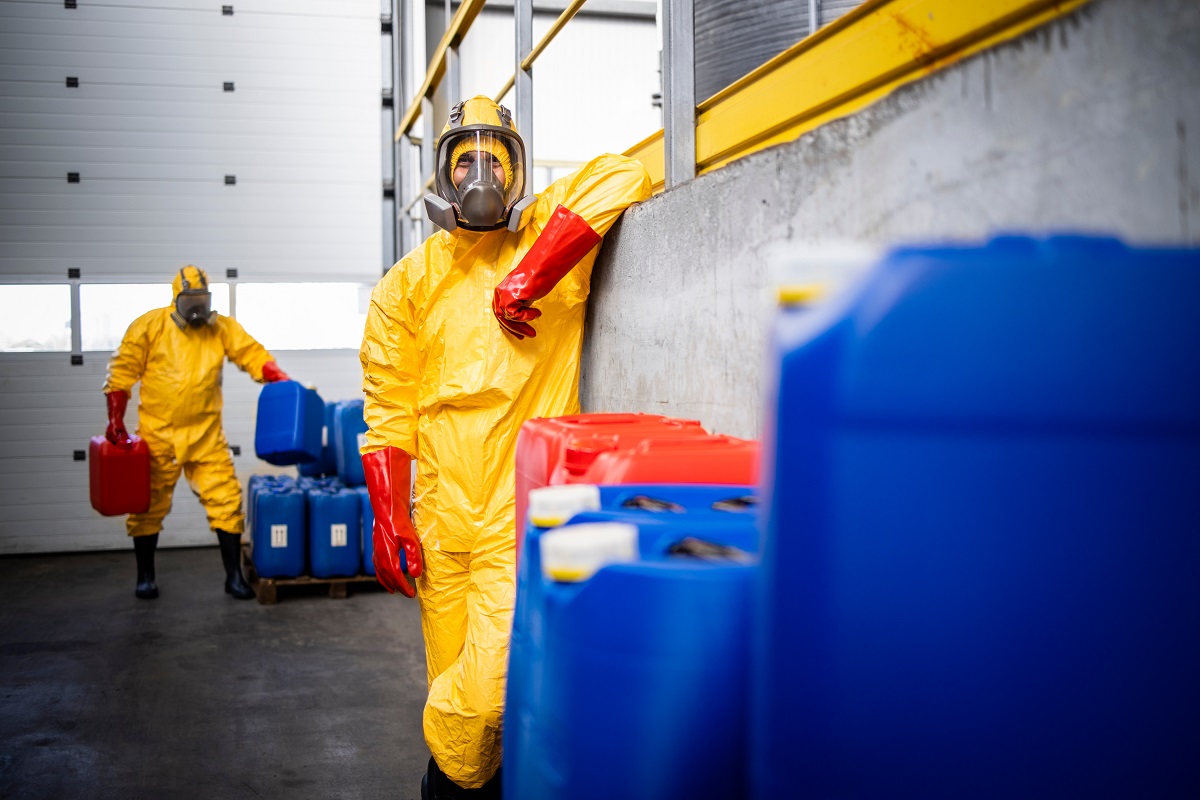In this edition:
- GM and Unifor reach tentative agreement
- Ontario announces creation of Canada’s first-ever Occupational Exposure Registry
- RCMP launches criminal investigation into Doug Ford’s Greenbelt land swap
- Canadian universities bet on international students, but global shifts present risks
- Ontario Power Generation to relocate corporate headquarters
- 25% of executives anticipate workforce reduction as primary impact of generative AI
- Focus on Technology

GM and Unifor reach tentative agreement
On October 10 at 1:00 p.m. EDT, GM Canada reached a tentative agreement with Unifor covering approximately 4,200 represented employees at the St. Catharines Propulsion Plant, Oshawa Assembly & Operations, and the Woodstock Parts Distribution Centre. GM reports that work will resume at all three facilities this afternoon.
“This record agreement, subject to member ratification, recognizes the many contributions of our represented team members with significant increases in wages, benefits and job security while building on GM’s historic investments in Canadian manufacturing,” said President and Managing Director Marissa West.
About 4,300 unionized workers went on strike at three General Motors plants in Canada on Tuesday, boosting pressure on the automaker grappling with a U.S. union work stoppage now in its fourth week.

Ontario announces creation of Canada’s first-ever Occupational Exposure Registry
The Ontario government has committed to creating Canada’s first-ever Occupational Exposure Registry to track harmful exposure levels, help diagnose workplace diseases faster, improve worker compensation, and reduce costs to the healthcare system. The registry will help address many of the 41 recommendations resulting from the province’s first-ever review of the occupational illness landscape, released in a report today.
Many workplace illnesses currently go undiagnosed or unreported because of the delay between exposure and symptoms, making it difficult to identify occupational disease risks and for workers to get financial support when they fall ill. The new registry would include comprehensive exposure records, identify at-risk workers, help with earlier diagnoses, and potentially contribute to expanding the list of presumptive illnesses in Ontario to improve worker compensation.

RCMP launches criminal investigation into Doug Ford’s Greenbelt land swap
The RCMP has launched a criminal investigation into Premier Doug Ford’s $8.28-billion Greenbelt land swap scandal.
In another stunning setback for Ford’s embattled Progressive Conservatives, the Royal Canadian Mounted Police is formally on the case.
“Following a referral from the Ontario Provincial Police, the RCMP ‘O’ Division’s Sensitive and International Investigations (SII) unit has now launched an investigation into allegations associated to the decision from the province of Ontario to open parts of the Greenbelt for development,” the RCMP said in a statement Tuesday.
Ford’s office said “the government will fully co-operate with any investigation.”

When the University of British Columbia announced the launch of Vantage College in 2013, the school said it envisioned the program for fee-paying international students would have enrolment of 1,000 by August 2016. However, Vantage’s enrolment is currently 172 students, having declined every year since reaching 498 in 2018-2019.
The struggles of Vantage College reflect the unpredictable nature of the lucrative international education sector, as Canadian universities find themselves beholden to geopolitical and economic shifts.
There have been massive changes in the sector, with study permits for Chinese students in Canada plunging 40 per cent since 2018. Permits for students from India — where English is far more widely spoken — have meanwhile doubled.

Ontario Power Generation to relocate corporate headquarters
Ontario Power Generation (OPG) has given a Durham Region building a notable change, unveiling new property signage for the company’s future corporate headquarters on 1908 Colonel Sam Drive in Oshawa.
“Our relationship with Durham Region and its member municipalities has been so vital to the success of our ongoing operations,” said Mel Hogg, Chief Administrative and Ethics Officer. “It only makes sense for OPG’s corporate headquarters to also be here, close to our operations and projects.”
Dignitaries from across Durham Region toured the building, which is currently undergoing renovations in preparation for full occupancy in 2025.

25% of executives anticipate workforce reduction as primary impact of generative AI: study
In July and August 2023, MIT Technology Review Insights polled 1,000 business leaders about their organizations’ approaches to implementing generative AI technologies. Respondents were distributed among 11 industries, including consumer goods and retail, financial services, manufacturing, and pharma and health care. The report also draws on in-depth interviews with academics, data leaders, and AI experts.
“Business leaders are cautiously pursuing the transformative potential of generative AI, with nearly all respondents acknowledging its impact on their businesses,” says Laurel Ruma, global editorial director, MIT Technology Review Insights. “However, only a small fraction have fully embraced generative AI use cases, highlighting a measured approach to implementation.”
Did you know?
Focus on Technology
Icon CEO tags 3D-printed homes as future of housing
Jason Ballard, the chief executive officer (CEO) of 3D-printing company Icon, has a bold vision for the future of housing. He believes that 3D-printed homes can solve the global housing crisis, build sustainable infrastructure on the moon and even help us colonize Mars.
Ballard’s company is already working on a number of projects to make this vision a reality. On Earth, Icon is printing communities of affordable homes in Texas and California. And in partnership with NASA, Icon is developing 3D-printing technology to build structures on the moon using lunar regolith, the powdery soil that covers the moon’s surface.
Warning AI industry could use as much energy as the Netherlands
The artificial intelligence (AI) industry could consume as much energy as a country the size of the Netherlands by 2027, a new study warns.
Big tech firms have scrambled to add AI-powered services since ChatGPT burst onto the scene last year. They use far more power than conventional applications, making going online much more energy-intensive. However, the study also said AI’s environmental impact could be less than feared if its current growth slowed.
Through the Daily Updates, the GNCC aims to deliver important business news in a timely manner. We disseminate all news and information we feel will be important to businesses. Inclusion in the Daily Update is not an endorsement by the GNCC.



